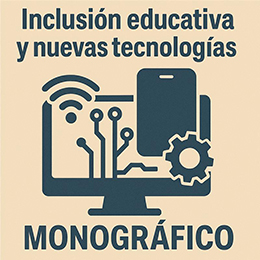A trust model in open and ubiquitous higher education based on Blockchain technology
DOI:
https://doi.org/10.51302/tce.2019.281Keywords:
Blockchain, digital certificate, competencies, mined by consensus, confidence, P2PAbstract
Bitcoin has revolutionised digital transactions and the global economy. It advocates a decentralised model of confidence for transactions based on a crypto currency. Thousands of followers defend its decentralisation, independence, security and versatility. Its detractors call it a speculative bubble, a way to encourage cybercrime or pseudo pyramid schemes, as well as being built around a non-scalable and inefficient technology. But what if it were possible to take advantage of the benefits of the technology underlying Bitcoin, Blockchain, to revolutionise higher education and its adaptation to today's working world? What if rather than economic transactions it were used to manage transactions of content, teaching and competencies, assessed by consensus by students, trainers and employers, in order to eliminate once and for all the gap between the academic world and the working world? This paper presents a model based on Blockchain to address the current challenges of an increasingly dispersed, open and ubiquitous higher education. The proposed model can be implemented in any training institution to adapt its teaching to the specific needs of professional profiles validated by employers in the sector. This model has been validated by means of a prototype with more than acceptable results.
Downloads
References
Bartolomé, A. R., Bellver, C., Castañeda, L. y Adell, J. (2017). Blockchain in education: introduction and review of the state of the art. EDUTEC. Revista Electrónica de Tecnología Educativa, 61.
Buterin, V. (27 December 2015). Understanding serenity, part 2: Casper. Ethereum Blog. Recuperado de https://blog.ethereum.org/2015/12/28/understanding-serenity-part-2-casper/ (consultado en febrero de 2018).
Cano, E. y Cabrera, N. (2016). Competency assessment tool (CAT). The evaluation of an innovative competency-based assessment experience in higher education. Journal Technology, Pedagogy and Education, 25(5).
Clow, D. y Makriyannis, E. (27 February-01 March 2011). iSpot analysed: participatory learning and reputation. Proceedings of the 1st International Conference on Learning Analytics and Knowledge (pp. 34-43). Banff, Alberta.
Jones, H. (15 March 2016). Broker ICAP says first to use Blockchain for trading data. Reuters. Recuperado de http://uk.reuters.com/article/us-icap-markets-Blockchain-idUKKCN0WH2J7 (consultado en febrero de 2018).
King, K., Prince, K. y Swanson, J. (2016). Learning on the block: could smart transactional models help power personalized learning? KnowledgeWork Forecast 4.0. Recuperado de https://www.Blockchaindailynews.com/attachment/756565/ (consultado en abril de 2018).
Nakamoto, S. (2008). Bitcoin: a peer-to-peer electronic cash system. Bitcoin. Recuperado de https://bitcoin.org/bitcoin.pdf (consultado en abril de 2018).
Schlegel, H. (s. f.). Reputation currencies. Institute of Customer Experience. Recuperado de http://ice.humanfactors.com/money.html (consultado en abril de 2018).
Sharples M. y Domingue J. (2016). The Blockchain and kudos: a distributed system for educational record, reputation and reward. In K. Verbert, M. Sharples y T. Klobucar (Eds.), Adaptive and Adaptable Learning. EC-TEL 2016. Part of the Lecture Notes in Computer Science book series, 9891. Springer.
Tapscott, D. y Tapscott, A. (2016). Blockchain Revolution: How the Technology Behind Bitcoin is Changing Money, Business, and the World. Brilliance Audio.
Valenzuela, J. (15 March 2016). Arcade city: Ethereum’s big test drive to kill Uber. Coin-telegraph. Recuperado de http://cointelegraph.com/news/arcade-city-ethereums-big-test-drive-to-kill-uber (consultado en febrero de 2018).
Downloads
Published
How to Cite
Issue
Section
License
Copyright (c) 2019 David Lizcano Casas, Juan Alfonso Lara Torralbo

This work is licensed under a Creative Commons Attribution-NonCommercial-NoDerivatives 4.0 International License.


























